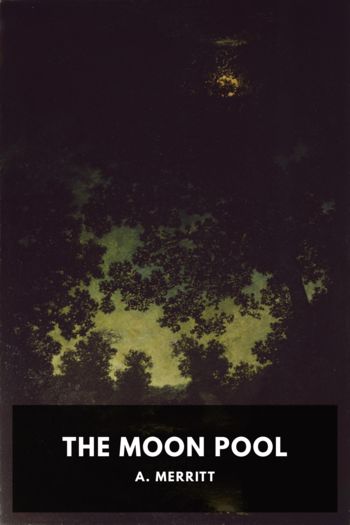How to Become a Witch by Amber K. (large ebook reader txt) 📗

- Author: Amber K.
Book online «How to Become a Witch by Amber K. (large ebook reader txt) 📗». Author Amber K.
Healer: A high proportion of Witches are healers: either doctors, nurses, physician’s assistants, or others in allopathic medicine; or doctors of Oriental medicine, naturopaths, chiropractors, herbalists, reiki practitioners, massage therapists, and so on. Since healing is viewed holistically by most Witches, we include spiritual and emotional healers, such as counselors.
Herbalist: Though herbalists are often healers, they also include makers of essential oils, incenses, herbal gifts, etc., and anyone whose life revolves around the magick of herbs.
Host/ess: They are essential to the Craft community, though often not recognized and honored as they should be. Some open their homes as covensteads, providing hospitality for coven meetings and a second home for coveners. They may also host local events like business meetings, drum circles, or small concerts. They often provide lodging for traveling Craft folk. Some go professional and become Pagan-friendly innkeepers or create and manage retreat centers. Though we all love the outdoors, most of us really appreciate a cozy shelter from time to time.
Interfaith Representative: These Witches interact with clergy and laity of other religions, to educate them about Witchcraft and work for the common good. They often design interfaith gatherings or rituals, celebrating the commonalities we all share. Most interfaith work is done locally, but some organizations, like the Covenant of the Goddess, have members who work on the international stage, attending the Parliament of the World’s Religions and other gatherings of world religious leaders. Go to www.cog.org to learn more.
Magician: All Witches practice magick, but some make the Arts Magickal the focus of their lives. They become proficient in thaumaturgy and theurgy, ritual of all kinds, and spellcrafting, and teach others how to perform magick ethically and effectively.
Merchant: This is a very earthy way of serving the Craft community. The staff of metaphysical shops provide useful and inspirational goods for Witches, as well as community centers where people can make contacts or take classes. Others create or distribute goods that Pagans want or need, and are generous in sharing the wealth with the community. Online merchants provide a service for those who cannot shop in person.
Oracle or Channel: Some Witches develop skill in the high art of aspecting, also known as “Drawing Down the Moon” or “assuming the God-form.” They can establish a direct connection with Deity and embody that divine personality. The incarnate god or goddess may speak through their lips. This is traditionally done by a priestess who aspects the lunar goddess—hence “Drawing Down the Moon”—but in recent years, many have practiced “Drawing Down the Sun.” It is best to have training and support from an experienced Witch before you attempt this.
Ritualist/Ritual Leader: Any Witch is a ritualist, since even solitaries perform personal rituals, but this vocation particularly refers to those who lead community rituals. Ritual leaders must be comfortable with large groups, adept at guiding participants to a common purpose, and skilled at sensing and manipulating energy. They should have a touch of the entertainer but also be able to involve participants emotionally and spiritually. They must also be able to mobilize and coordinate the talents of others, so the ritual never becomes an exercise in personal ego.
Sacred Architect or Landscaper: Anyone who creates ritual circles, labyrinths, sacred gardens, stone circles, shrines, temples, or medicine wheels is included. In ancient times, such people designed projects that involved moving hundreds of tons of earth and stone over several years—such as Silbury Hill or Stonehenge in Britain, or the temples of Malta. Such projects required a deep knowledge of astronomy and sacred geometry. Though few of us build modern Stonehenges today, many create shrines, gardens, and outdoor ritual circles.
Sacred Fool: This calling, also called “sacred clown,” is honored in many Native American religions and has become important in Pagan circles. These Witches embody the divine Trickster at rituals and festivals by clowning, telling stories, or mimicking those who deserve a little mockery. This is not an excuse to be naughty, nor is it simple entertainment. The Fool, or Trickster, is a teacher and a guardian of the community’s spirit. By acting out behavior that disrupts the values of the community and showing us the results, the Clown teaches us what to avoid. He or she may also teach through storytelling and circus-style clowning, or through pranks that make us look at ourselves with new eyes.
Scholar: Every religion has researchers, scholars, historians, and archivists. The Craft presents an unusual challenge for such folks. The prehistoric roots of our spiritual path were never recorded in writing, and much of our early history was destroyed by missionaries eager to burn manuscripts, deface statues, and tear down ritual sites. We have few material resources to work with, yet many of us hunger to know more about our spiritual heritage and life when the whole world was Pagan. Scholars who can illumine any part of this provide a gift to us all.
Teacher: Obviously, anyone who teaches Witchcraft or its associated skills is a teacher. This includes teaching within the Craft community or to youth only, or public education about the Craft. Closely aligned are those who create and administer schools and seminaries. By tradition, teaching that leads to initiation as a Witch is free. Craft teachers of collateral subjects, those not directly aimed toward initiation, may charge reasonable fees.
One or more of these may call to you—there is no rule that you must only do or be one thing. Because everything is connected, all of these overlap. In your Book of Shadows, write about the one or more vocations that call to you. What will you need to learn in order to do this? Could you make a career of it, or would it have to remain





Comments (0)